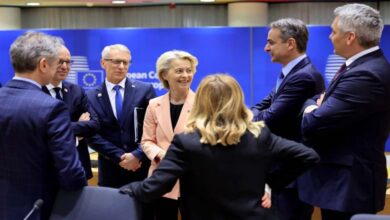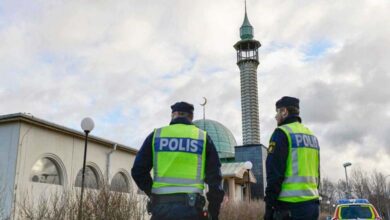Europe Prepares for the Worst: Call to Stock Emergency Supplies

The European Commission has announced a comprehensive strategy to enhance the preparedness of EU member states to face escalating crises, ranging from geopolitical threats and cyberattacks to natural disasters.
-
“Military Service”: Europe’s Concerns Drive towards “Mandatory” Service
-
Why Is It Time to Reconsider the Creation of a European Army?
The plan includes unprecedented measures such as introducing “preparedness lessons” in school curricula, urging citizens to stock supplies for 72 hours, and establishing a “European Crisis Centre” to coordinate cross-border responses.
This announcement comes amidst warnings about rising threats, including geopolitical risks, cyberattacks, and climate change, as well as intelligence reports of a “potential Russian attack on a European country within 3-5 years.”
-
Europe, the Largest Importer of U.S. Weapons over the Past Five Years
-
Discover the 10 Most Powerful Armies in Europe: The United Kingdom in First Place
Details of the Plan
According to the plan, school curricula in member states will include training on disaster preparedness (floods, fires) and countering misinformation, aiming to build a generation capable of making quick decisions in emergencies.
The European Commission also recommended that families store food and medicine for at least 72 hours in case of emergency, emphasizing that “the first hours of a crisis are the most dangerous.”
The strategy stressed the need to establish a European Crisis Centre to coordinate cross-border responses, drawing on successful models from countries like Finland and Sweden.
-
After America: Is it Time to Transform NATO into a European Organization?
-
International Expert Reveals Strategies to Confront the Muslim Brotherhood in European Countries
Context of Threats: From the War in Ukraine to Climate Change
This initiative comes amid growing concerns about security, with Ursula von der Leyen, President of the Commission, stating that “Europe can no longer consider its security as a given.”
The plan document mentions several factors, including the Russian war in Ukraine and rising geopolitical tensions, as well as hybrid attacks such as the sabotage of critical infrastructure and information manipulation. Recurrent climate disasters (floods, wildfires) are also exacerbated by global warming.
-
How did political Islamic movements contribute to the rise of the far right in Europe?
-
The Umbrella Organization of the Muslim Brotherhood… Everything you need to know about the Federation of Islamic Organizations in Europe
Intelligence Warnings and Reactions
European intelligence reports – according to the Financial Times – warned of the potential for a Russian attack on an EU member state in the coming years, prompting Brussels to adopt policies similar to those during the Cold War.
The Commission also referenced a report by former Finnish President Sauli Niinistö, which stated that “Europe is now vulnerable to risks after decades of over-reliance on stability.”
Kaja Kallas, Vice President of the Commission for Security, noted, “External threats are increasing, whether through cyberattacks or direct aggression.” Meanwhile, Jutta Hübner, Commissioner for Crisis Management, described the plan as “a necessity to protect the 450 million European citizens.”
-
Joint International Operation Arresting Far-Right Extremists in Europe… Details
-
French campaigns to ban the Muslim Brotherhood in the European Union… Details
Doubts about Feasibility and Implementation
While there is a consensus on the need to enhance preparedness, several significant challenges remain for the EU, including: disparities in capabilities among countries, with some European capitals lacking adequate infrastructure to manage crises. There are also concerns about causing panic, as a home storage campaign could be interpreted as a sign of imminent disaster.
Furthermore, implementing the plan requires approval from the European Parliament and member states, whose priorities may differ.
In the face of these challenges, the strategy serves as a wake-up call for Europe to reassess its security policies, but its success depends on turning recommendations into tangible actions.
-
New Tough Stances – The European Union deports illegal migrants to their countries
-
Historic Agreement: The European Union reaches final formulation to address the sharp increase in refugees












